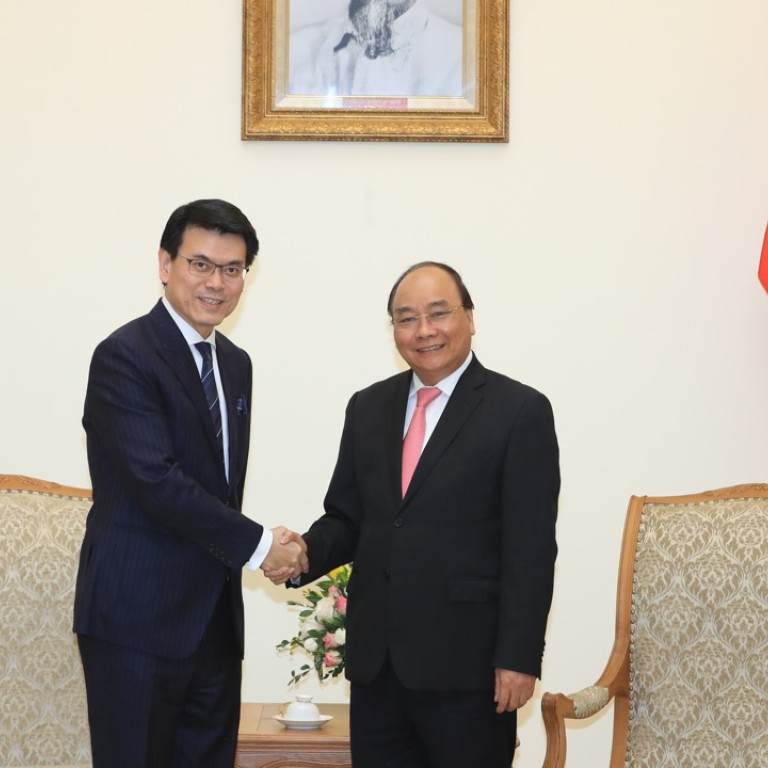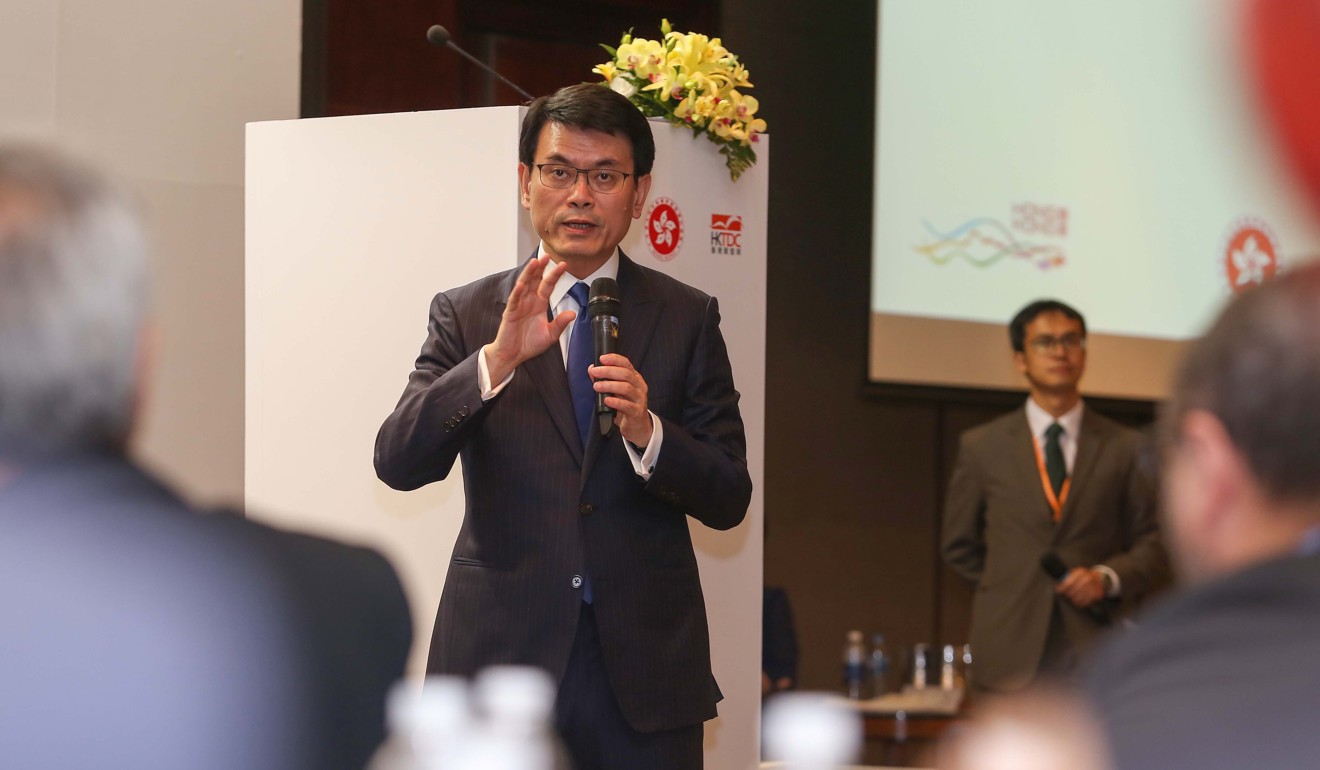
Exclusive | Tech and public works to drive growth for Hong Kong businesses in Southeast Asia, commerce minister says after visit
Transport and infrastructure projects supplanting traditional industries in region that accounts for hefty share of city’s trade
Focusing on transport and infrastructural projects in Southeast Asia will pay off for Hong Kong professionals and businesses, the city’s commerce minister said, as the region’s economy is more driven by technological and public works investments than traditional industries.

Vietnam ‘scraps South China Sea oil drilling project under pressure from Beijing’
Yau said the delegation saw how Cambodia and Vietnam were now keen to attract overseas professionals and financiers, not just manufacturers, to work on large-scale infrastructure projects, including railways and ports.
Hun Sen’s crackdown: loss of EU trade benefits could cost Cambodia US$700 million annually
“What it needs from Hong Kong changed from simply direct investment on manufacturing to a more diversified portfolio [including professional services].”
In 2016, bilateral trade between Hong Kong and Asean was HK$833 billion (US$106 billion), or 11 per cent of the city’s total bilateral trade. That was second only to mainland China, which accounted for half of Hong Kong’s total trade.
That year, the total trade between Hong Kong and Vietnam was HK$126 billion (US$16 billion); between the city and Cambodia, it was HK$9 billion (US$1.15 billion).
Hong Kong vows to hit back against any ‘discriminatory’ US trade actions
Yau said while Cambodia was still seeking to attract manufacturers, the country’s officials had been more eager to work with overseas legal, accounting, insurance and architectural firms to push infrastructural and investment projects forward.
He explained Vietnam previously relied heavily on Hong Kong’s investment in manufacturing, but now it needed the city to help develop technologically.
As a “one-stop shop” for financial and professional services, Hong Kong was well-placed to tap into business opportunities with Asean, Yau added.
According to the Asian Development Bank, as much as US$1.7 trillion per year is needed for infrastructure development in Asia until 2030.
They need Hong Kong to play an active role in national economic development
Yet Yau harboured no worries about the city’s trade with Hanoi being hindered by the diplomatic complications.
“[Vietnam’s] prime minister met us, and the local newspapers made it clear they need Hong Kong to play an active role in national economic development,” he said, adding that both Vietnam and Cambodia recognised the city’s strengths under the “one country, two systems” principle.
Under the principle, Beijing guaranteed the city would have an independent judiciary and its capitalist system and way of life would remain unchanged for 50 years after it was returned from British rule in 1997.

